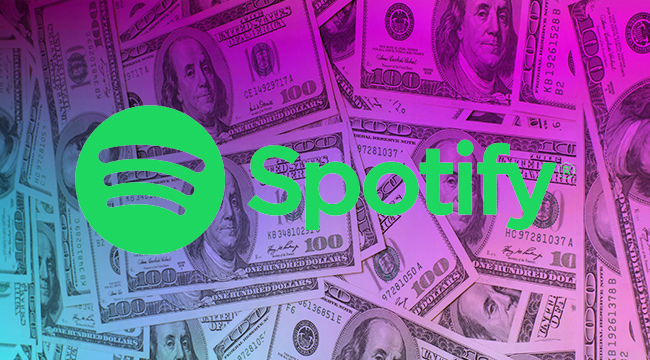
In addition to the ads that users of the free service must contend with, Spotify is now testing out Sponsored Songs, which will allow labels to promote singles as a way of product testing. The streaming service confirmed the new feature to TechCrunch this week after users began noticing a mysterious “Sponsored Content” opt-out setting in the app. Although Spotify was quick to clarify that these sponsored songs will only affect the free tier of users, the opt-out was first discovered by Twitter user Liam Maloney, who pointed out that he is in fact a paying subscriber to the service.
Very happy I've found where to turn off "sponsored songs" on @Spotify
I don't pay for a platform AND expect adverts. pic.twitter.com/1AWBr3cm1T— Dr Liam Maloney (@liamtmaloney) June 19, 2017
Ostensibly, the sponsored songs would only appear to users in the free tier, who are not as lucrative to Spotify as paid subscribers, should it move past the testing phase,. And by stealthily tailoring songs to the individual user — such as having them appear on playlists with similar listening tastes — the hope is to not only avoid scaring off free subscribers, but even encouraging them to save the music and later revisit.
Sponsored Songs could slip right into Spotify without interrupting the listening experience. When targeted well, users might not even notice a song is sponsored. But the labels hope they’ll get the tune stuck in their head, saving it to their Spotify library, sharing it with friends, returning to listen to more of the artist’s music, and eventually earning money directly for the musician and label by buying concert tickets or merchandise.
TechCrunch warns that these Sponsored Songs precariously toe the line to the practice of “radio payola,” back when music labels actually paid radio stations to put their artists’ music on the air. Congress put a kibosh on this practice in the early aughts, but marking the songs as sponsored, however, may help Spotify wiggle around the rule.
At any rate, the initial reaction from users has not exactly been receptive, so whether or not Spotify decides to move forward with an official rollout remains to be seen.
Spotify is letting record labels pay to promote 'sponsored songs' in users' pic.twitter.com/JSlo4jiiJQ
— Radar del Geek (@Radardelgeek) June 20, 2017
This better not expand to the paid subscription space. Moves like this would make it very easy to switch services. https://t.co/m26JQs6fJG
— P.J. Wascher (@PEAJAEwascher) June 20, 2017
Seems like we have come full circle in the music industry. "Spotify ‘Sponsored Songs’ lets labels pay for plays" https://t.co/CH3Jaky3Ke
— Fiede Schillmoeller (@fiede) June 20, 2017
(Via TechCrunch)
